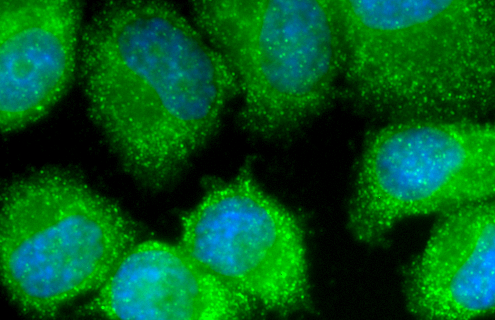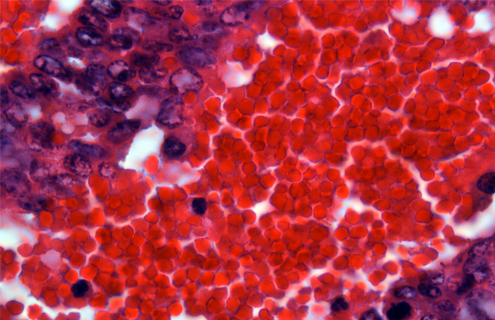
In order to fight cancer, researchers require an array of authenticated tumor cells to understand the mechanisms that drive carcinogenesis and metastasis, and to test new therapies. ATCC offers a wide variety of cancer cell lines for use in research related to cancer genetics, early detection methods, and effective treatment of disease. Panels of these cell lines offer researchers the value of several lines for comprehensive studies.
Panels by Tissue Type
ATCC has designed tumor cell panels based on the tissue of tumor origin, each annotated with details regarding known mutations - enabling intelligent choices when selecting cell-based research models. Get the cancer panels you need by tissue type:
- Bladder cancer cell panels
- Bone cancer cell panels
- Brain cancer cell panels
- Breast cancer cell panels
- Colon cancer cell panels
- Head/Neck cancer cell panels
- Leukemia cell panels
- Lung cancer cell panels
- Lymphoma cell panels
- Liver cancer cell panels
- Melanoma cancer cell panels
- Molecular signature panels
- Ovarian cancer cell panels
- Pancreatic cancer cell panels
- Soft-Tissue sarcoma cell panels
- Stomach cancer cell panels
Cell Lines by Genetic Mutation
ATCC has created gene mutation lists based on the ATCC tumor cell line collection and known mutation information maintained in the Sanger Institute Catalogue of Somatic Mutations in Cancer (COSMIC) database. Find out more about genetic-mutants.
- APC - adenomatous polyposis coli
- BRAF - i proto-oncogene encoding B-RAF
- CDKN2A - cyclin-dependent kinase inhibitor 2A
- CTNNB1 - catenin (cadherin-associated protein) beta 1
- EGFR - epidermal growth factor receptor
- PIK3CA - phosphatidylinositol-4, 5-bisphosphate 3-kinase
- PIK3R1 - phosphatidylinositol-4, 5-bisphosphate 3-kinase
- PTEN - phosphatase and tensin homolog
- RAS - rat sarcoma proto-oncogene
- RB1 – retinoblastoma
- SMAD4 - mothers against DPP homolog 4
- TP53 - tumor suppressor transcription factor, p53
Panels by Molecular Signature
ATCC has designed tumor cell panels based on the tissue of tumor origin, each annotated with details regarding known mutations - enabling intelligent choices when selecting cell-based research models.
Genetic Alteration Panels
The tumor cell panels in the genetic alteration collection are organized around genes that have important implications for cancer research. The cell lines in each of these panels were selected because they carried a specific mutations or deletion or because they exhibited gene amplification, in the featured gene. Moreover, the mutational status of the cell lines in these panels have been sequenced and validated by ATCC.
P53 Hotspot Mutation Cell Panels
p53 is a tumor suppressor protein encoded by the TP53 gene that responds to DNA damage by regulating cell-cycle arrest, apoptosis, and senescence. These p53 hotspot mutation cell panels are composed of select cell lines derived from tumors of various tissue origins. The p53 mutational status of these lines have been sequenced and validated by ATCC.
Genetic Alteration Cell Panels
Panels for Cancer research

p53 Hotspot Mutation Cell Panels
p53 is a tumor suppressor protein encoded by the TP53 gene that responds to DNA damage by regulating cell-cycle arrest, apoptosis, and senescence. The p53 mutational status of these lines have been sequenced and validated by ATCC.
Download the Brochure
Tumor Cell Panels by Tissue Origin
ATCC Tumor Cell Panels are powerful tools to accelerate your discoveries in cancer research, compound screening, biomarker selection, pathway analysis, and targeted therapeutic development. Each panel consists of cell lines that are easy to grow using “classic” media formulations, grouped by tissue of tumor origin, and annotated with published data relevant to your research, such as known mutations in select oncogenes or receptors.
Download More Info